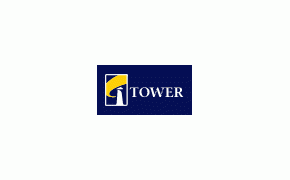
The latest data released for KiwiSaver performance as at March 31, 2013 is from Tower. Our story covering the results to December 31, 2012 can be found here.
As readers of the KiwiSaver section will know Tower's managed funds business (includes KiwiSaver) is now owned by Fisher Funds.
For the time being there will be no change to the way the funds operate and the key Tower staff are still employed to run the funds.
This purchase is just part of the current rationalisation occuring in the KiwiSaver space and we would be expecting there to be more acquisitions and smaller funds to be closed because they are not commercially viable.
The best performing Tower portfolio over the past five years has been the Conservative Fund with returns averaging 5.6% p.a. The Tower Conservative, Preservation and Cash Enhanced Funds continue to outperform the more aggressive options available to investors.
In some of the Tower's comepetitors we have noticed the gap between the performance of Conservative and Aggressive funds closing markedly, however this is not the case for Tower's funds.
We noted in our last review that the global equities strategy was being managed in-house, and the general expectation was this part of the portfolio will take some time to bed down. This continues to be the case with the Equity Fund still showing a negative return since inception based on our calculations of changes in unit pricing.
Some of the Equity Fund / Aggressive KiwiSaver peer group are recording positive returns over the same period and at present they appear to be better alternatives for investors.
Looking at the shorter term returns, over the last 12-months the Tower Growth Fund has performed the best with a return of 14.4%, beating the Equity Fund by nearly 1.8%. This return also beats Fisher Fund's return for their Growth Fund.
There are several reasons for the Growth Fund outperforming the Equity Fund = the main reason being the vastly different asset allocation. The Growth Fund has a lower weighting to global shares and includes property and a modest allocation to fixed income assets with a bias towards offshore bonds.
The Equity Fund on the other hand in primarily a 50/50 split between global and Trans-Tasman shares and the return on global shares has severely lagged that from New Zealand. Also not having one of the best performing sectors (i.e Property) in the portfolio will have hurt the Equity Fund.
It will also be interesting to see what influence the new owner has on the stock selection and asset allocation process and whether the returns for the two managers merge closer together.
Below is a table of the longer term performance of the Tower funds. The return data is before tax and after fees and is calculated using the unit prices published by the manager. (No adjustments have been made to take into account those additional fees which scheme providers may charge and which are not included in calculating the fund performance. We do make such adjustments, but they will not be included until the full benchmarking is published.)
|
Tower KiwiSaver Scheme (31 March 2013) |
1 year * (p.a.) |
5 year* (p.a.) |
Since inception* (Oct 2007) (p.a.) |
| Cash Enhanced Fund (default) | 7.9% | 5.4% | 5.1% |
| Preservation Fund | 3.5% | 3.9% | 4.2% |
| Conservative Fund | 8.8% | 5.7% | 5.1% |
| Balanced Fund | 11.8% | 5.0% | 4.1% |
| Growth Fund | 14.4% | 4.0% | 1.8% |
| Equity Fund | 12.6% | 1.5% | -1.6% |
* The returns are calculated using the change in unit price and annualised accordingly.
More detailed performance reporting can be found here ».
We welcome your comments below. If you are not already registered, please register to comment
Remember we welcome robust, respectful and insightful debate. We don't welcome abusive or defamatory comments and will de-register those repeatedly making such comments. Our current comment policy is here.